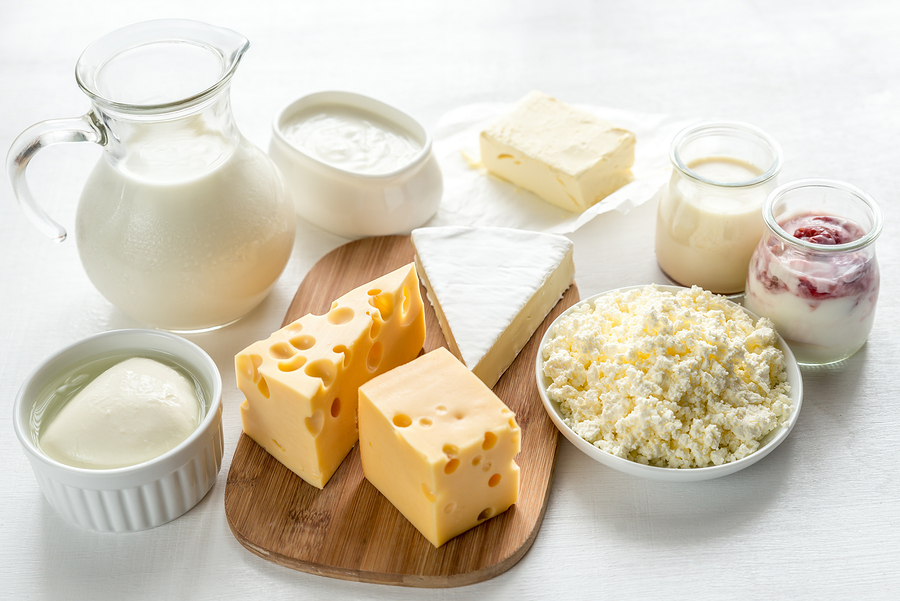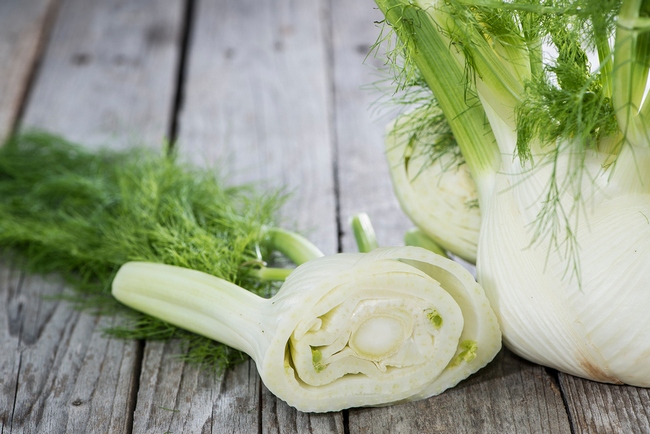- Make It Yourself Lavender Heart-Shaped Bath Bombs!
- 20 Things You Never Knew About “Down There”
- 12 Best Foods For Those Suffering From Arthritis Pain
- 12 Personal Hygiene Mistakes Almost Everyone Makes (Mom Never Told You About #4!)
- 15 Medicinal Plants And Herbs From The Cherokee People
- 12 Mind-Blowing Benefits Of Drinking Coconut Water During Pregnancy
- 12 Outstanding Winter Foods That Won’t Fatten You Up Like A Christmas Turkey
15 Little Known Tips For A Healthier Digestive And Immune System (Who Knew #8?)

Photo credit: bigstock.com
If you are looking for an improved immune system, then you almost certainly know that the key to a stronger immune system lies in your digestive system. By improving your digestion, you will automatically improve your immune system.
Some foods, such as red meat and refined foods, are difficult for the body to digest. They take more time to break down before nutrients can be extracted and carried throughout the body.
For an overall healthier digestive system and, therefore, an improved immune system, take a look at the following 15 tips that will help you get the most out of your meals.
1. Start With a Food Log
You’ve heard this one before, but that doesn’t make it any less true. If you find that you have digestive problems, keep a log for 5 to 7 days of everything you eat and any reactions that you might have. You should begin to see a pattern that will let you know your digestive system’s response to certain foods or even different cooking methods. Then you will be able to more easily determine which foods you should avoid.
Continue to Page 2

Photo credit: bigstock.com
2. Caffeine
If your food log shows that caffeine does not upset your stomach, then feel free to drink green tea, caffeinated herbal teas, and coffee. All of these beverages boost acid in the stomach, which is important for digestion. Also, coffee, green tea, and herbal teas have tons of health benefits. However, if you have found from your food log that things like coffee upset your stomach, then you should opt for decaffeinated beverages.
3. Eat Whole Grains
Not just foods that say “made from whole wheat” – that’s not good enough. Read the label on any children’s sugar-filled cereal and it probably says it’s made from whole wheat. It might start off as whole wheat, but food companies grind down the wheat and process it until it is nothing more than refined flour. When we say whole grains, we are talking about whole meal bread, whole meal pasta, brown rice, oats, and buckwheat. These are all excellent sources of fiber, which not only improve the digestion, but feed the good bacteria in the digestive system. If you have a gluten intolerance or if your food log has shown that wheat products do not agree with you, then by all means, avoid them.
4. Spicy Foods
Some people really enjoy spicy foods made with various types of chilies, garlic, and strong onions, but for other people, these types of ingredients are a big no-no. If your food log has shown that spicy foods bother you, even things like garlic, then you should limit your consumption or avoid them. However, spicy foods have a great many health benefits to your digestive system. Garlic is excellent for your heart as well as for improving your immune system. Onion is a known cancer fighter and chilies fight pain through their highly anti-inflammatory compounds.
5. Limit High Fat Foods
Fatty foods slow down the overall digestive process, which makes you much more prone to constipation. Constipation is not only uncomfortable, but it allows more time for toxins to enter the bloodstream. Your body does need fat, however. Eating a high fiber diet will allow the fat that you do eat to pass more quickly through the body. So look for lean cuts of meat such as skinless poultry, pork loin, and the leanest cuts of beef you can afford.
Continue to Page 3

Photo credit: bigstock.com
6. Dairy
Regardless of how you feel about dairy products, there is no denying that they are good for the body. Unless your food diary has shown that you are lactose intolerant, dairy products such as hard cheese, yogurt, and milk are terrific sources of probiotics, which add to the good bacteria in your stomach and intestines.
7. Avoid Certain Vegetables
Pay special attention to your food log and vegetables. Some types of vegetables tend to cause bloating and excessive gas. Foods such as cauliflower, radishes, broccoli, turnips, and cabbage tend to be the worst offenders. You might want to limit your consumption of these foods if they cause you problems. A little gas is normal after eating these vegetables, but if you find that they cause you serious distress, avoid them or limit your consumption. This doesn’t mean you should avoid vegetables. All of the above veggies are good for you, but if they cause you serious digestive problems, then avoid them.
8. Eat Fermented Foods
Fermented foods such as sauerkraut, pickles, and miso are loaded with probiotics, the healthy type of bacteria you definitely want more of when it comes to improving your digestive system. Probiotics improve the absorption of nutrients, break down fats and lactose, and improve the immune system. Try to eat some type of probiotic food at least once each day.
9. Choose the Fish
Eating fish, especially fish that are high in omega-3 fatty acids, such as trout, tuna, and salmon, is vital for improving your digestive system. Omega-3 fatty acids are important for many functions in the body, including normal bowel movements, brain function, the absorption of nutrients, and stopping inflammation, including inflammation in the digestive tract. Try to eat at least two servings of fatty fish each week.
10. Snack on Nuts
Nuts are perhaps one of nature’s most perfect snack foods. Especially nuts that are high in omega-3s, such as walnuts and almonds. Just one ounce, about a handful, will improve digestion by adding much needed fiber. Non-salted nuts are your best choice.
Continue to Page 4

Photo credit: bigstock.com
11. Fennel
For super digestion, try drinking fennel tea two or more times each day. In many parts of the world, fennel seeds are served after dinner to improve digestion. Fennel relaxes the entire digestive tract, making it easier for your body to digest foods and move them along the intestines.
12. Focus on Fiber
A high fiber diet is perhaps one of the best ways to improve your digestive system in just a few meals. Fiber keeps things moving along, preventing constipation and other types of digestive problems such as hemorrhoids, IBS, and diverticulosis. It’s important that you get both soluble and insoluble types of fiber. Insoluble fiber, sometimes called roughage, is fiber that cannot be digested by the body but adds bulk to your stool. Soluble fiber means that this fiber draws water to itself and can prevent hard, dry stool. Make one of your dietary focuses fiber and everything will come out all right in the end … so to speak.
13. Avoid Fried Foods
Yes, we know, fried foods taste good, but they are extremely hard on your digestive system. Fried foods are some of the hardest things for your body to digest, especially if they are fried in GMO trans-fat oils such as corn oil or soybean oil. Skip the fried stuff and go for broiled or baked.
14. Fruit
To get plenty of healthy soluble and insoluble fiber, eat at least 3 fruits each day. Not juice, but the whole fruit. If your fruit choice has edible skin, so much the better. The skin of most fruit is loaded with vitamins and important fiber, so eat that apple, including the peel. Of course fruit like bananas can be peeled, so don’t worry about choking that down!
15. Diversify Your Meals
Try to eat a wide variety of foods. Substitute beans instead of meat for one meal each week. Try some pita bread for your lunchtime sandwich or whole meal pasta with peas. Of course, if any of these foods upset your digestive system, you should avoid them, but Mother Nature made our bodies quite flexible, so get as many diverse nutrients as you can by adding variety to your meals as much as possible.
READ ALSO: 12 Natural Ways To Treat Digestive Problems
Extra Tips:
- Get regular exercise. This helps food move through the body more easily
- Manage your stress levels
- Skip those bad habits like smoking, excessive drinking, and late nights
- Drink plenty of fluids. For good digestion, drink a full 16 ounces of water with each meal
References:

































Kitsy WooWoo
Jan 19, 2016 at 9:37 am
“Regardless of how you feel about dairy products, there is no denying that they are good for the body”
Ah, but there IS denying they are good for the body.
https://healthesolutions.com/harvard-declares-dairy-not-part-of-healthy-diet/
Mark
Apr 10, 2016 at 11:07 pm
Great Product i really need help with my digestive issues and gas bloating .
http://theperfectbiotics.com